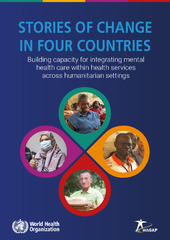
Story of change in four countries
Publication date: 2021
The current report, Stories of change from four countries: Building capacity for integrating mental health care within health services across humanitarian settings, describes efforts in four countries to build evidence-based mental health systems in humanitarian emergency settings using the mhGAP-HIG. This report includes three sections, the first describing the importance of scaling up mental health care in emergency contexts, the second outlining case studies (“stories of change”) to scale up the Mental Health Gap Action Programme (mhGAP) programme in four settings and the third describing lessons learned by stakeholders.
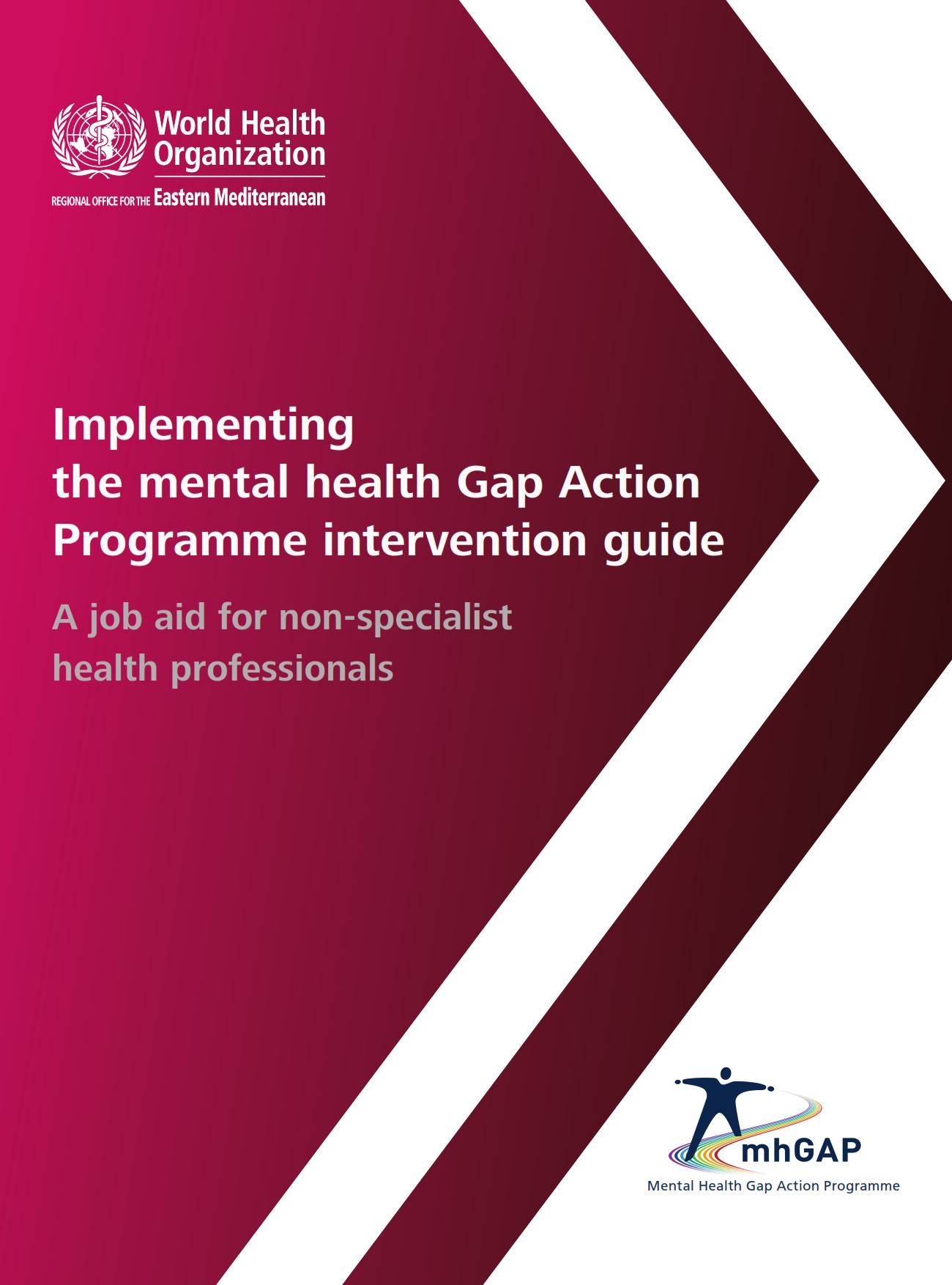
Implementing the mental health Gap Action Programme intervention guide: a job aid for non-specialist health professionals
Publication date: 2021
The objective of the Mental Health Gap Action Programme (mhGAP) is to scale up care and services using evidence-based interventions for prevention and management of priority mental neurological and substance use conditions. This operational guide has been developed to help non-specialists conduct standardized clinical interviews and examinations and deliver interventions as outlined in the mhGAP Intervention Guide version 2 for mental, neurological and substance use disorders in non-specialist health settings. A further objective of this guide is to help health care providers remain patient-centred and protect the rights of the patient, emphasizing issues such as the need for patient privacy and confidentiality and providing tips for health care providers in clinical scenarios in which vital information may need to be shared with others.
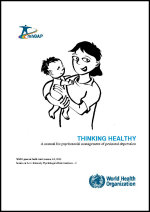
Thinking healthy
Publication date: English 2015 | Arabic 2021
The Thinking Health manual outlines an evidence-based approach describing how community health workers can reduce prenatal depression through evidence-based cognitive-behavioural techniques recommended by the Mental Health Gap Action Programme (mhGAP). This manual is the first volume of WHO’s new series on low-intensity psychological interventions.
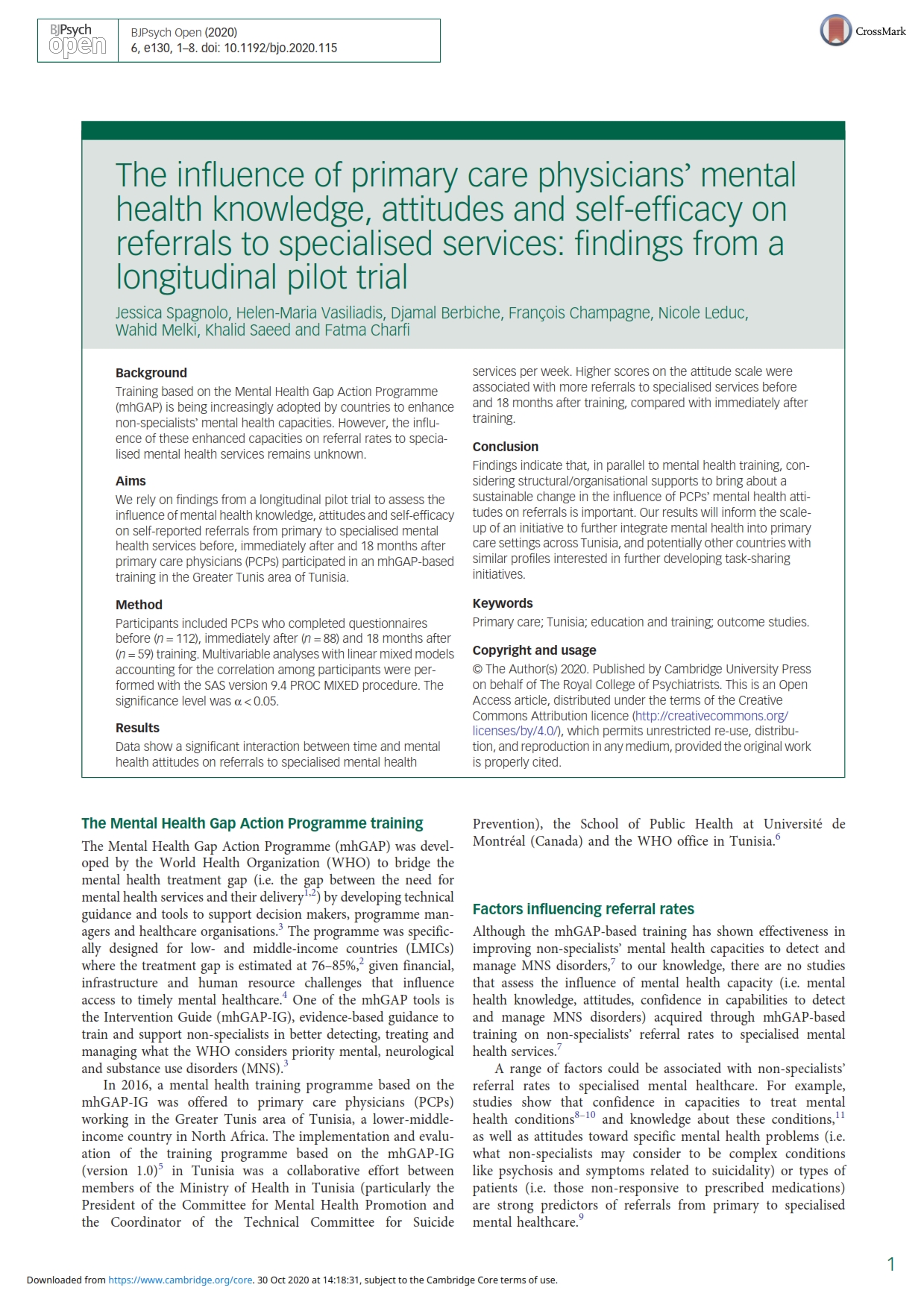
The influence of primary care physicians’ mental health knowledge, attitudes and self-efficacy on referrals to specialised services: findings from a longitudinal pilot trial
Publication date: 2020
Training based on the Mental Health Gap Action Programme (mhGAP) is being increasingly adopted by countries to enhance non-specialists’ mental health capacities. However, the influence of these enhanced capacities on referral rates to specialised mental health services remains unknown. The authors of this article rely on findings from a longitudinal pilot trial to assess the influence of mental health knowledge, attitudes and self-efficacy on self-reported referrals from primary to specialised mental health services before, immediately after and 18 months after primary care physicians participated in an mhGAP-based training in the Greater Tunis area of Tunisia.
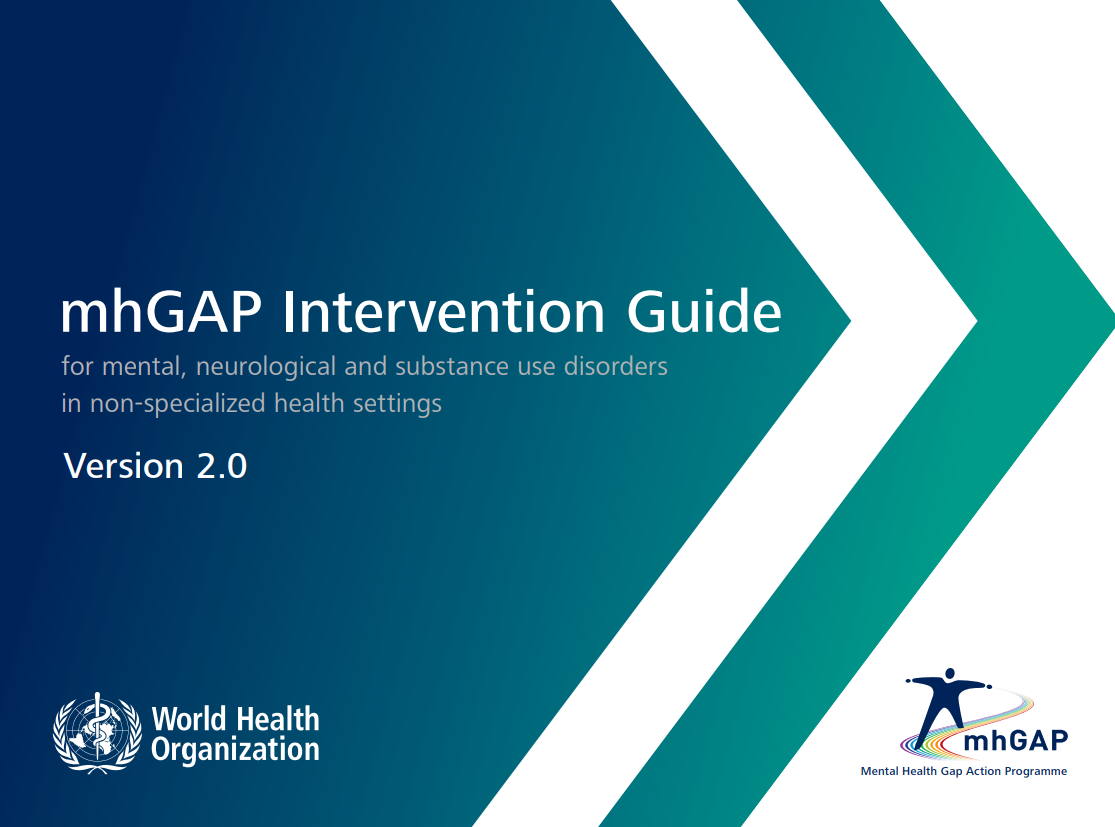
mhGAP Intervention Guide for mental, neurological and substance use disorders in non-specialized health settings - Version 2.0
Publication date: 2016
This is the second version (2016) of the mhGAP Intervention Guide (mhGAP-IG) for mental, neurological and substance use (MNS) disorders in non-specialist health settings. It is for use by doctors, nurses and other health workers, as well as health planners and managers. The Intervention Guide presents the integrated management of priority MNS conditions using algorithms for clinical decision-making. This update of the 2010 edition is based on new evidence as well as extensive feedback and recommendations from experts in all WHO regions who have used mhGAP-IG Version 1.0. The mhGAP-IG Version 2.0 is a valuable tool to scale up services for people with MNS conditions and their families.
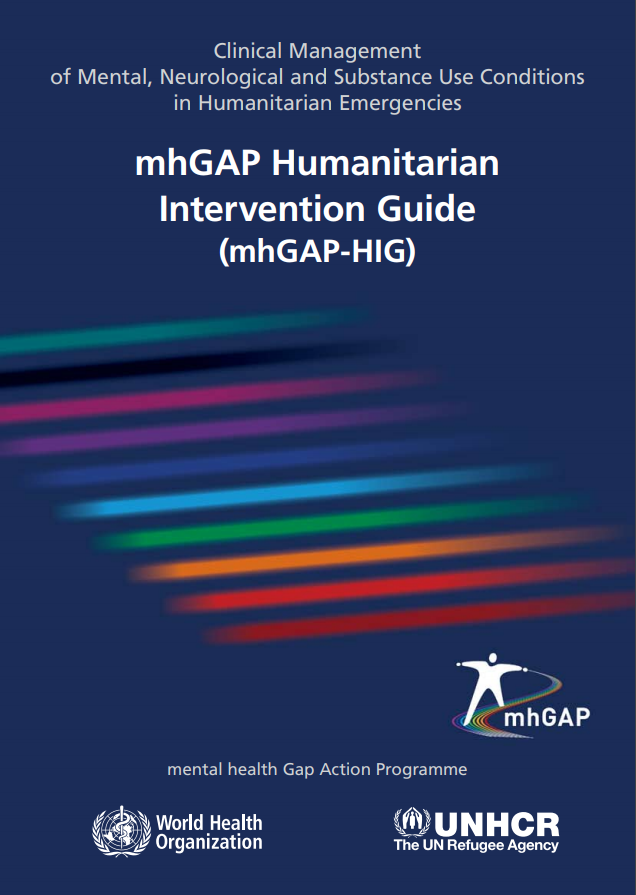
mhGAP Humanitarian Intervention Guide (mhGAP-HIG): Clinical management of mental, neurological and substance use conditions in humanitarian emergencies
Publication date: 2015
The mhGAP Humanitarian Intervention Guide contains first-line management recommendations for mental, neurological and substance use conditions for non-specialist health care providers in humanitarian emergencies where access to specialists and treatment options is limited. It is a simple, practical tool that aims to support general health facilities in areas affected by humanitarian emergencies in assessing and managing acute stress, grief, depression, post-traumatic stress disorder, psychosis, epilepsy, intellectual disability, harmful substance use and risk of suicide. This tool is an adaptation of WHO’s mhGAP Intervention Guide, a widely-used evidence-based manual for the management of these conditions in non-specialized health settings.
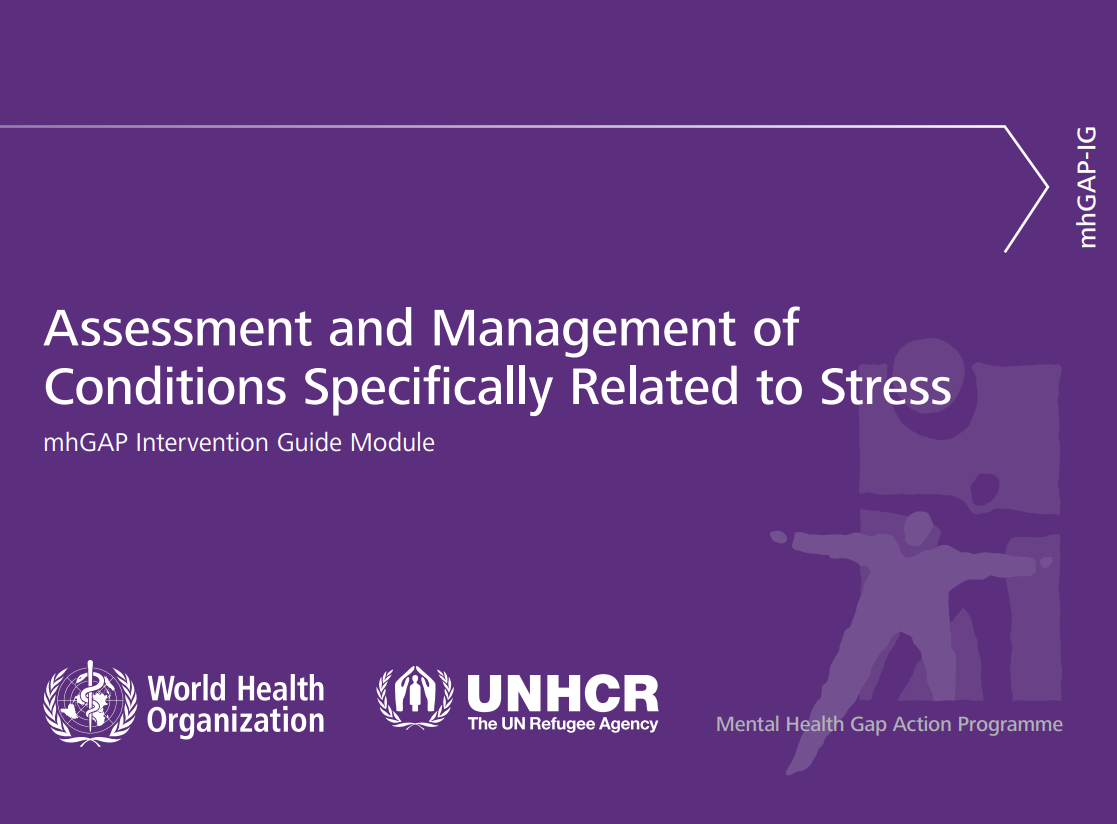
mhGAP Intervention Guide module: Assessment and management of conditions specifically related to stress
Publication date: 2013
This mhGAP module on conditions specifically related to stress produced by WHO and UNHCR contains assessment and management advice related to acute stress, post-traumatic stress and grief in non-specialized health settings. It is an annex to the mhGAP Intervention Guide for mental, neurological and substance use disorders in non-specialized health settings (WHO, 2010).
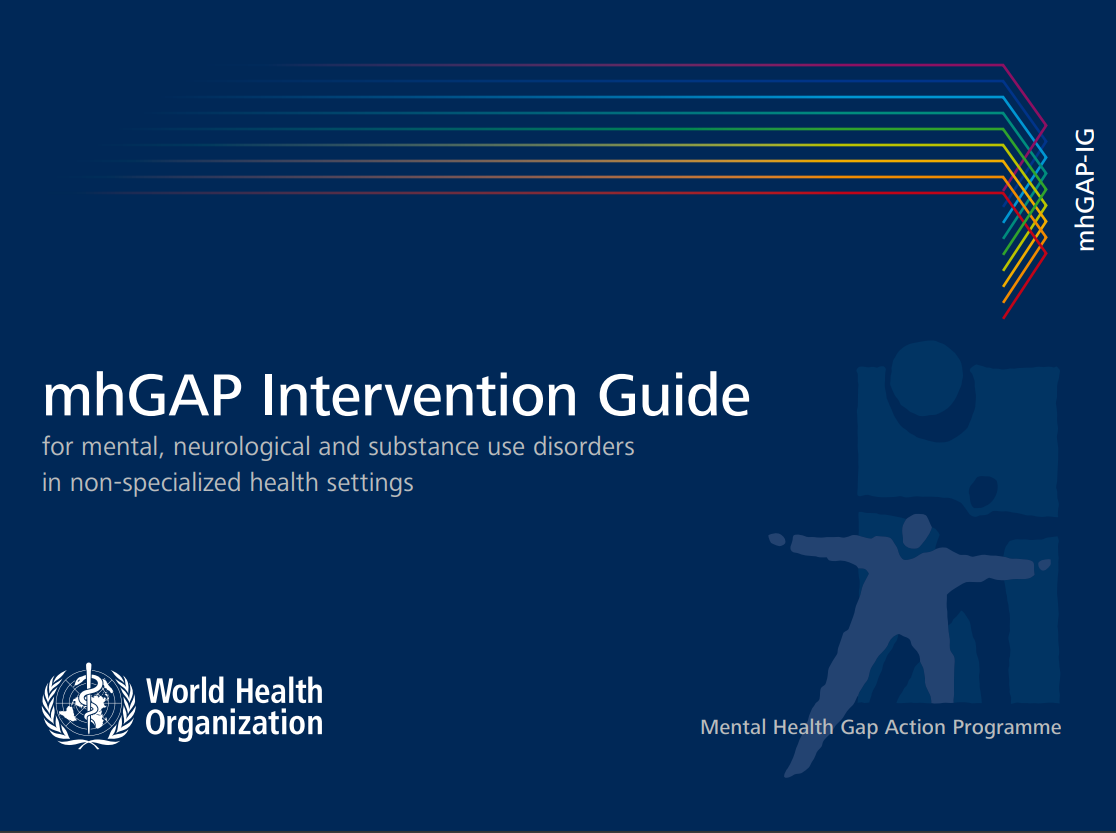
mhGAP Intervention Guide for mental, neurological and substance use disorders in non-specialized health settings
Publication date: 2010
The mhGAP Intervention Guide (mhGAP-IG) for mental, neurological and substance use disorders for non-specialist health settings, is a technical tool developed by WHO to assist in the implementation of mhGAP. The Intervention Guide has been developed through a systematic review of evidence followed by an international consultative and participatory process. The mhGAP-IG presents integrated management of priority conditions using protocols for clinical decision-making. The priority conditions included are: depression, psychosis, bipolar disorders, epilepsy, developmental and behavioural disorders in children and adolescents, dementia, alcohol use disorders, drug use disorders, self-harm/suicide and other significant emotional or medically unexplained complaints. The mhGAP-IG is a model guide and has been developed for use by health care providers working in non-specialized health care settings after adaptation for national and local needs.
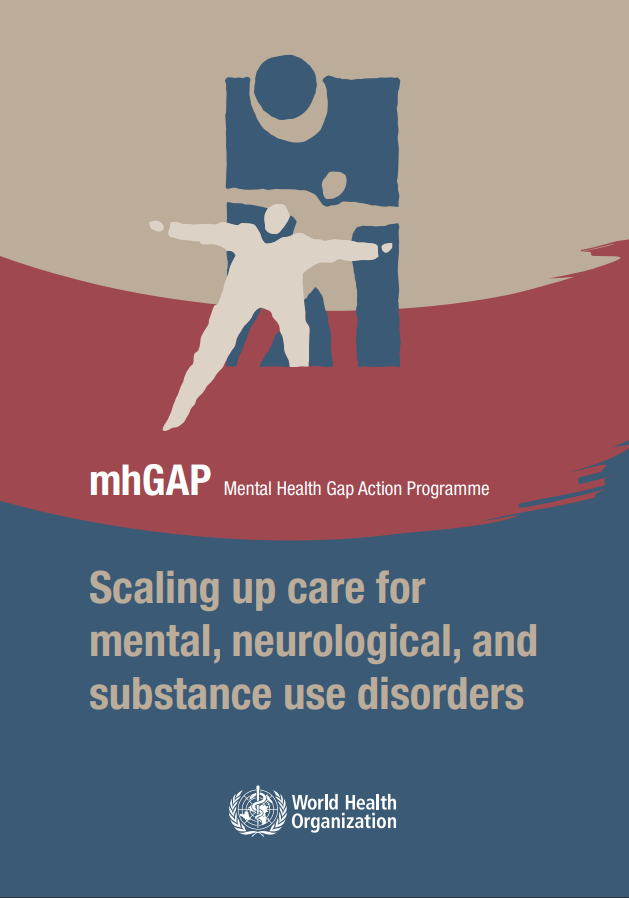
mhGAP Mental Health Gap Action Programme: Scaling up care for mental, neurological, and substance use disorders
Publication date: 2008
mhGAP is WHO’s action plan to scale up services for mental, neurological and substance use disorders for countries especially with low and lower-middle incomes. The priority conditions addressed by mhGAP are: depression, schizophrenia and other psychotic disorders, suicide, epilepsy, dementia, disorders due to use of alcohol, disorders due to use of illicit drugs, and mental disorders in children. The mhGAP package consists of interventions for prevention and management for each of these priority conditions.








